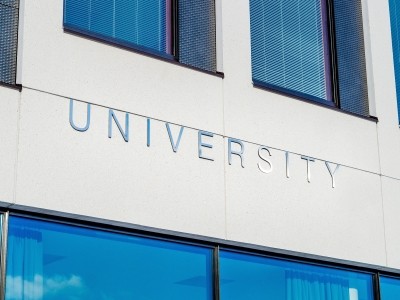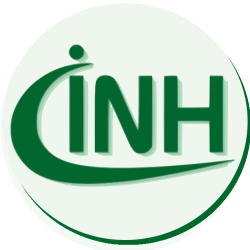Pseudoscience with Academics
A guest contribution by Dr. phil. Susanne Dietz
There are existing, unfortunately, the Jakeszs, Hubers, Broers, Burkarts, Dahlkes, etc. of this world, who spread esoterically and spiritually veiled beliefs (in addition to the occasionally available professional competence in their field) and earn money with them.
 Since I myself have been active in the academic sector and know that there is a very special commitment to knowledge, for a long time it has been an absurdity for me to experience how some intellectually crashed “scientists” or physicians consciously inflict damage on their field and mislead other people – against better knowledge and thus assumingly with lack of conscience.
Since I myself have been active in the academic sector and know that there is a very special commitment to knowledge, for a long time it has been an absurdity for me to experience how some intellectually crashed “scientists” or physicians consciously inflict damage on their field and mislead other people – against better knowledge and thus assumingly with lack of conscience.
The attitude of integer scientists to such revelation oaths of scientific ethos still consists too frequently in declining and saying: “I have better things to do than to deal with something like this. It’s clearly obvious that xy is off track.”
Sorry, but no, it is not obvious, not clearly recognizable for many. The average citizen recognizes only that here someone “of the discipline” confirms his world of faith and cites this again and again as testimonial for the conservation of his view of a “spiritual/esoteric world”. But he does not recognize (or is not willing to recognize) that this is only a fact-negative interpretation of reality. A reality which – in light of a research which hat advanced far in the 21st century – has little or nothing to do with esotericism, but with rules and laws which we often do not suit and are partly difficult to understand because they run contrary to our everyday thought structures and processes.
Such an indifferent attitude on the part of scientists of integrity makes it possible for laypersons to engage in pseudo-scientific cherry-picking for more or less base motives, and thus to give themselves a scientific touch that is de facto none. And to improve oneself pecuniarily with it – not exactly seldom.
Our world, our existence, our finiteness is not easy to understand and also not easy to accept. It is understandable to me that many therefore gather a view of the world that gives them pseudo security and well-being. But I cannot agree with that.
Because it doesn’t change anything that faith and knowledge are two pairs of boots and at the end of the day that what we know is preferable to what we believe – simply because it is KNOWLEDGE. And the nature of secure knowledge – such as the ineffectiveness of homeopathy beyond placebo – is its non-negotiability.
If, then, the scientific community does not publicly clearly reject and clarifies postulates from doctors like R. Jakesz, or J. Huber (by the way: these are doctors and by no means scientists) or D. Broers (whose imaginative academic career is more than questionable) and other esoterically inclined “colleagues” or hypotheses from pre-scientific times like those of Samuel Hahnemann, they commit in my eyes a sin of omission that damages the status and reputation of science.
I would wish therefore more and more people and committees from the scientific / academic field to take a clearer stand against such currents, just as the Münsteraner Kreis (German transdisciplinary scientific network against pseudomedicine in medical and non-medical practice) does against homeopathy.
We have the opportunity to obtain specific information: There are Cochrane, Higgs (Swiss scientific portal), Information Network Homeopathy, GWUP (German skeptics association), MaiLab (very popular scientific video blog), MedWatch (investigative project of misleading medical advertisement and information), and bloggers like Dr. Natalie Grams, Dr. Florian Aigner, Dr. Norbert Aust and many, many more. So there would be offers for every social and intellectual group to protect themselves against esotericism and pseudomedicine, their false assertions and manipulations – and thus to protect their own purses and health.
However, getting this information is a commitment to themselves – and is not always lived, not even by academics. What does that tell us? That the personal feeling of well-being counts more for some people than the awareness of the limits of the possible that indeed goes hand in hand with knowledge implying some inconveniences and imponderables that have to be endured in the real world. Even some students prefer to believe and repress, although they know better. And that’s where the fun ends.
Because academics know one thing:
Conspiracy theories of all kinds are lived errors of thought, which are clearly recognizable as such and can be named – and must also be named, so that the manifold damages, which can emanate from esoteric influences of all kinds, are contained. The responsibility lies with the scientific community of the 21st century, simply because it has the ability to do – and knows better.
Ergo: If academics, some doctors and some scientists make use of esotericism, this has a clear proximity to wilful intent and has to do with self-interest and manipulation of others. Consequently, I cannot resist assuming that it is fraud. The sentence: “They don’t know what they’re doing” doesn’t work.
At this point it is no longer a matter of desire – I EXPECT from academics to differentiate, clear conclusions (i.e. not to base them on simplistic cause-effect thinking) and to position themselves clearly against esotericism. No academic can tell me that he doesn’t know better – or at least could know better – if he did what he learned: research cleanly.
And why did I write this? I did my doctorate and the title is not just an academic achievement to me. Above all, I associate it with a clear academic ethos: I feel committed to interdisciplinary, clean, development-oriented acquisition of knowledge, preservation of knowledge in line with reality, and a faithful transfer of knowledge.
Dr. phil. Susanne Dietz
The above article first appeared in the blog “Draufgeschaut” by Dr. Susanne Dietz and is published here with the kind permission of the author.
Original article at http://dietz-trainings.com/#4#blog#30
Picture credits: Pixabay Creative Commons CC0

